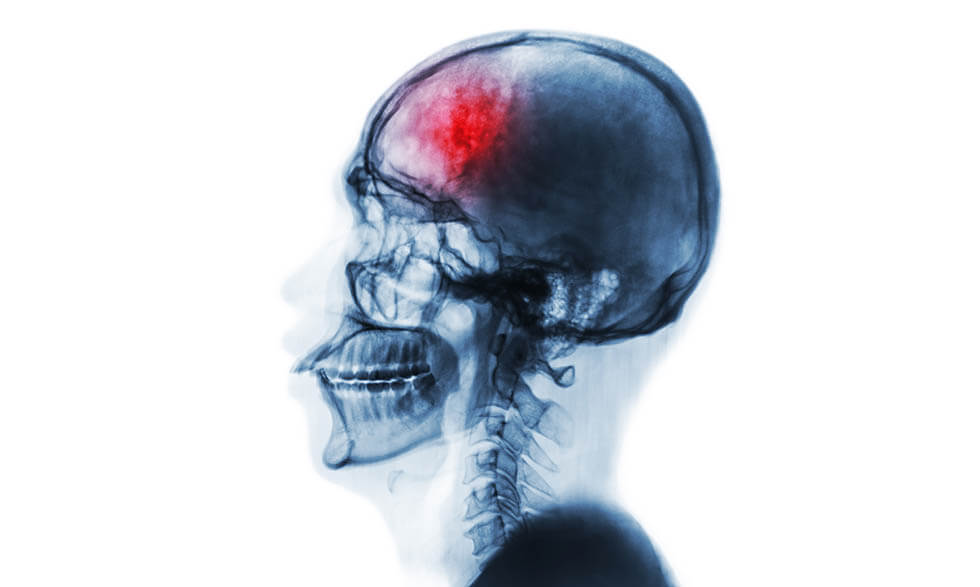A traumatic brain injury (TBI) happens after a bump, blow, or jolt to the head. This can cause the brain to bounce or twist inside the skull, sometimes stretching and damaging cells. TBIs range from mild to severe.
A concussion is a type of mild TBI and is not life threatening, but its effects can be significant. More severe TBIs can lead to serious physical and psychological symptoms, coma, and even death.
What are the causes?
There are two main types of brain injuries. Non-penetrating injuries are caused by events like a fall, a motor vehicle crash, a sports injury, or being struck by an object. Penetrating injuries happen when the skull is pierced by an object like a bullet or bone shrapnel, or a weapon like a knife.
- Falls are the leading cause of TBI, accounting for almost half of all TBI-related emergency room visits.
- Adults age 65 and over and children under the age of 17 are most likely to suffer a head injury from a fall.
- Being struck by an object is the second most common cause of TBI-related emergency room visits.
- Motor vehicle accidents are the most common cause of TBI among young adults.
What are the symptoms?
The symptoms of TBI depend on the seriousness of the injury and the amount of brain damage that has occurred.
Mild TBI symptoms:
- Headache
- Confusion
- Light-headedness or dizziness
- Vision problems
- Ringing in the ears
- Fatigue
- Trouble with memory, concentration, or thinking
- Brief loss of consciousness in some cases
Moderate or severe TBI symptoms:
- Headache that gets worse or does not go away
- Nausea or vomiting
- Convulsions or seizures
- Larger than normal pupil (the dark center) in one or both eyes
- Slurred speech
- Weakness or numbness in the arms and legs
- Loss of coordination
How is it treated?
For mild TBI, the main treatments are activity modification and a gradual return to normal activities. Doing too much too early can slow recovery. Contact your health care provider if symptoms are not getting better, are getting worse, or are persisting longer than a month.
For moderate to severe TBI, health care providers will stabilize you to prevent further damage to the brain. They'll focus on managing your blood pressure, checking the pressure inside your skull, and making sure your brain is getting enough blood and oxygen. Surgery, medication for side effects, and therapy for physical and mental effects may be needed.







